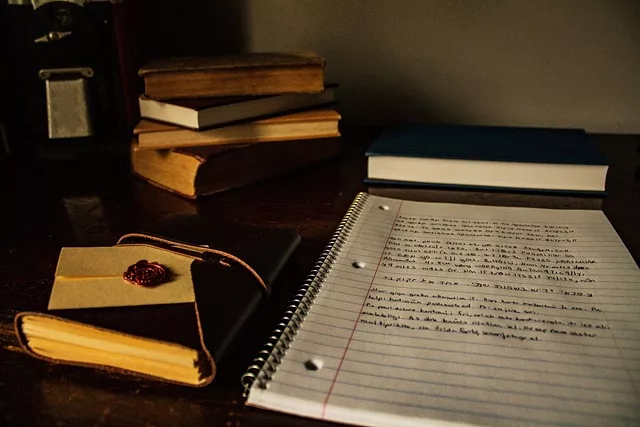Are Veterans Missing Out On VA Education Benefits?

Are veterans missing out on VA education benefit money for high-technology career fields? A Government Accounting Office (GAO) report indicates that may be true; worse yet there have been a large number of rejected applications for non-GI Bill VA education benefits with no clear indication as to why those applications were denied.
GI Bill Applications Versus Other Options
The GAO report notes that between 2019 and 2021 there were some 130 thousand applications for the Post 9/11 GI Bill. This number does NOT represent the total amount of applications received; instead, it represents the number of people who specifically used the Post 9/11 GI Bill to obtain a degree in a STEM field. STEM stands for:
Science
Technology
Engineering
Mathematics
In addition to the 130 thousand veterans using the GI Bill for STEM courses, another 3,500 applied for and received the Edith Nourse Rogers STEM Scholarship to help them continue their studies after their GI Bill benefits were exhausted.
The scholarship started helping veterans in 2019, specifically designed to help people finish STEM degrees once their GI Bill money is gone. This scholarship offers to the tune of $30 thousand over nine months (at press time).
3500 compared to 130 thousand people all striving for the same types of degrees does sound a bit low, especially when compared to the approximately 7 thousand people who applied–and got turned down–for the Rogers STEM Scholarship.
Why The Disparity?
The reasons for the number of denials outpacing the approvals for this scholarship are unknown at press time. That does NOT mean “unknown to this publication” but rather that the Government Accounting Office has no idea why the number of rejects (especially compared to the number of approved applications) is so high.
The GAO report also indicates that some might not have applied for this STEM scholarship at all because of uncertainty over the rules. And when it comes to tracking the reasons for application denials? The GAO report says the VA “denial categories” it does manage to track are “too general to be useful for detailed analysis,” according to that report.
The Challenges Of STEM Coursework
STEM courses require a great deal of academic rigor, and not all students are ideal for this path of study. It’s entirely possible that some applicants did not have the academic record needed to continue their studies in a STEM field. But that cannot and does not account for all the application rejections or the general lack of use of this scholarship. What did the GAO study reveal about these issues?
GAO Findings About VA Education Benefits Under The Edith Nourse Rogers STEM Scholarship
The GAO report can be troubling, especially with finding such as the following from the second page of the report’s introduction, which includes one entry that notes that some challenges are “specific to veterans.”
According to the GAO, “While veterans bring strengths, such as discipline, some also have physical or mental conditions from their military service that can affect their academic progress.” That is according to school officials the GAO interviewed during the course of the study.
What did the GAO discover about VA STEM Scholarship opportunities under this program in general?
The Department of Veterans Affairs “does not clearly communicate” with applicants about their Rogers STEM scholarship applications. The VA also does not “collect and use data needed to understand application denial trends.” The GAO report criticizes the VA for not sending clear information about applications, how to fill them out, etc.
One blurb from the GAO’s analysis of VA information notes a 63% denial rate among VA STEM scholarship applications. This occurred during the first three years the program operated.
The GAO report states, “This analysis also shows that VA denied African American or Black applicants and female applicants at higher rates than White and male applicants.” But since the VA failed to collect the data required to understand why the denials keep occurring, there’s no way to address this issue at press time adequately.
The General Accounting Office levels a harsh accusation against the VA, saying in its report, “VA has not yet conducted any analyses to understand the disparities in denial rates. Without additional data collection and analysis, VA is unable to take informed steps to better manage the program and address, as needed, these disparities.”
Tough Words From the GAO
That wasn’t the only tough love GAO had for the Department of Veterans Affairs. “Some of VA’s outreach materials and letters to veterans regarding the scholarship benefits and application process are not clear and may cause veterans to misunderstand the benefits available to them or hinder their access to the scholarship.”
Veterans who apply for the scholarship and have more than 6 months of GI Bill benefits are said to be automatically rejected. However, veterans are not always informed about their options or alternatives without the Rogers STEM Scholarship. If the GAO report is to be believed, the VA has quite a bit of housekeeping to do when it comes to informing veterans of their options.
In many cases, it may be best to apply for the benefit you want and allow the VA to make a determination. It’s a mistake to assume you cannot qualify for a VA GI Bill education benefit without talking to a VA representative or being told by the VA or an authorized agent that you do not qualify for a particular option.
The GAO report is not the first to criticize the VA for not working harder to provide the right benefits information to its customers, nor will it be the last. In the meantime, asking a lot of questions about your benefits is a smart way to proceed.
About the author
Editor-in-Chief Joe Wallace is a 13-year veteran of the United States Air Force and a former reporter/editor for Air Force Television News and the Pentagon Channel. His freelance work includes contract work for Motorola, VALoans.com, and Credit Karma. He is co-founder of Dim Art House in Springfield, Illinois, and spends his non-writing time as an abstract painter, independent publisher, and occasional filmmaker.


